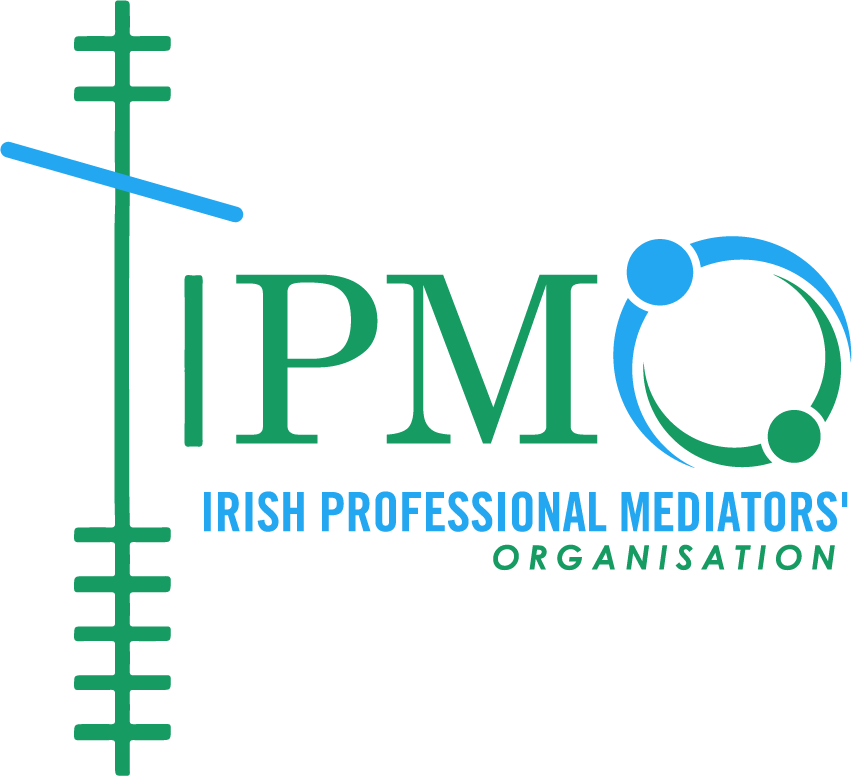by Dr Róisín O’Shea, Chair of the IPMO
For the first time the High Court has provided a detailed analysis of the benefits of mediation and the intentions of the Oireachtas to promote mediation as the first forum for dispute resolution. The Court has laid bare the merry-go-round and prohibitive costs for litigants in the High Court, and the financial incentive for the recipients of those fees - the lawyers.
In the July 2025 case of V Media Doo & Anor v Techads Media Limited [2025] IEHC 430 Justice Michael Twomey, said that the aim of the Oireachtas under section 14 of the Mediation Act 2017, is “…to ensure that litigation is the last resort, rather than a first resort, in order to save prospective litigants tens/hundreds of thousands of euros in legal costs and the many years of lost time and effort.”
Justice Twomey examined a solicitors obligations set out in section 14 of the 2017 Act. A solicitor must provide advice to their client about using mediation to try and resolve the dispute; must provide their client with information about mediation services, including providing the names and addresses of mediators; and must set out the advantages of resolving the dispute through mediation rather than litigating the matter. In his judgment Justice Twomey then outlined that evidence must then be provided to the Court that this has happened, which is done by way of a statutory declaration (Mediation Declaration) completed by the solicitor which must accompany the proceedings when filed. The judge noted that the obligations on a solicitor set out in section 14 are not a “box ticking exercise” for the Court or for solicitors.
If a solicitor has not done this, i.e. submitted the Mediation Declaration, then the Court must refuse to hear the case and is obliged to adjourn proceedings to enable advice on mediation to be provided as the law requires.
Justice Twomey noted that the aim of the Oireachtas, under section 14, is to ensure that litigation is the last resort, not the first step in trying to resolve a dispute; he noted the clear desire of the Oireachtas to save parties huge amounts of time and huge sums in legal costs and noted the considerable public interest in saving court time. He also emphasized the duty placed on all courts by section 14 of the Act to ensure that a plaintiff has received advice about using mediation: “This therefore puts an onus on all courts, to ensure that a plaintiff has been comprehensively advised to consider mediation instead of litigating, before hearing a case”.
This case sets an important benchmark for any Court hearing any civil dispute, which would include separations or divorce; that a hearing should only commence where the Judge is satisfied that the plaintiffs have been comprehensively advised on mediating rather than litigating their dispute. The Judge noted the importance the Act places on plaintiffs being advised on the benefits of mediation, “…before the client ends up on what might be termed the merry-go-round of litigation – one that is all too easy to get on, but can be difficult to get off.”
In referring to the benefits of using mediation, Justice Twomey noted that those benefits must include the “very considerable financial benefits of mediating, rather than litigating…”. The judge noted that the costs of a successful mediation were likely to be a fraction of the legal fees generated and likely to take a matter of weeks rather than in the region of 4 years to litigate. Interestingly, the Judge contrasted the prohibitive cost of legal fees for litigants in the High Court versus the financial incentive for the recipient of those fees – the lawyers.
In this case the proceedings had been issued without the accompanying Mediation Declaration, in direct contravention of the law. The judge held that an attempt by the solicitor to remedy the breach by providing a sworn Mediation Declaration later that same day, could not retrospectively remedy the breach of the 2017 Act.
The importance of this judgment cannot be understated for the development of mediation in Ireland. Justice Twomey has provided absolute clarity on not only the intentions of the Oireachtas to ensure that mediation is the first dispute resolution option for civil disputes but also outlined the benefits of mediation versus the reality of litigation:
1. Mediation offers a crucial opportunity for ‘reality checking’ of a plaintiff’s claim; an independent assessment by an objective mediator, before a court gets to do so.
2. A successful mediation will take a matter of weeks, whereas litigating may take years.
3. The costs of mediation are likely to be a fraction of litigation costs.
4. Once a plaintiff gets on the merry-go-round of litigation it is difficult to get off.
5. The legal costs for litigants in the High Court are prohibitive – but are an incentive for the lawyers who get those fees.
In the case of V Media Doo & Anor v Techads Media Limited, the plaintiff’s claim was for circa $2.5 million and the Defendant’s counter-claim was for circa $1.8 million, listed for an 8 day hearing, with costs estimated as likely to exceed €1 million. The Judge stated that this therefore was a case that would have benefited from mediation and “reality checking”, noting that the Court ultimately found that neither the plaintiff nor the Defendant were entitled to any award, and as a result the only winners in this case were the lawyers.
Read the full judgment here:
https://ww2.courts.ie/view/Judgments/67a63cbc-dc93-466a-8c8f-88834c5f5bd4/c0e565e5-5c18-4afd-a41f-c9be0a419a9f/2025_IEHC_430.pdf/pdf

